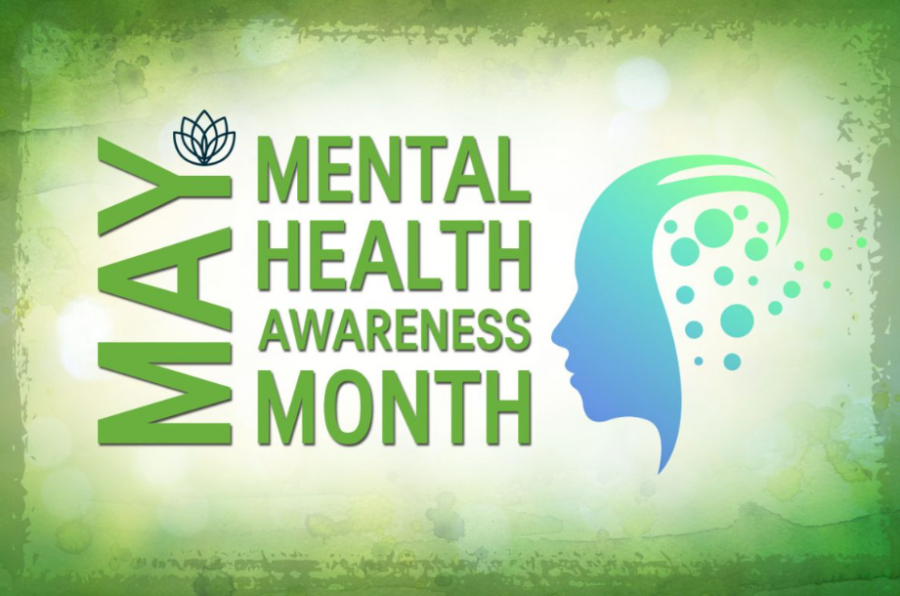Workshops offered for Mental Health Awareness month
May 15, 2023
May is Mental Health Awareness Month in the United States, which focuses on spreading awareness about mental health issues that affect millions of Americans every day. These conditions affect the daily lives of 1 in 5 American adults, and the COVID-19 pandemic has led to an increase in symptoms of anxiety and depression in adults.
Mental health is an important part of overall health and well-being. Mental health includes a person’s emotional, psychological and social well-being. It affects how one thinks, feels, and acts. It also helps determine how people handle stress, relate to others and make healthy decisions. Mental health is important at all stages of life, from childhood and adolescence through adulthood. Mental Health Awareness Month aims to spread awareness and educate about the different types of mental health conditions that affect your communities and loved ones.
Depression is real and deserves to be treated. Mental health is just as important as physical health. In the 21st century, people still treat the issue of mental health as a “taboo” subject. People diagnosed with a mental disorder are still stigmatized, and individuals continue to hide any symptom of psychological distress, as it is often considered a sign of weakness. This must change. No person is weak just because they go to a psychologist or ask for help; everyone has the right to ask for help without fear of being judged.
Depression is one of the most deadly diseases on the planet because it affects not only stomach cancer, colon, cancer, breast cancer, and Alzheimer’s, but it kills more people than most other forms of violence- warfare, terrorism, domestic abuse, assault, and gun crime. One in four people suffer from mental illness, talking about mental illness is not attention seeking. People die in silence every day due to this judgment, and people often find themselves saying, “I just wish they spoke up” after the fact. We cannot live in a society that stigmatizes mental health and mourns suicide. Society must break the stigma. Please talk about your mental health. It’s not weird; it is real and there is a cure.
Each mental health condition has its own symptoms, but there are common signs of mental illness. In adults and adolescents, warning signs of mental illness can include the following:
- Feeling excessively sad or low
- Confused thinking or problems concentrating and learning
- Extreme mood changes, including uncontrollable “highs” or feelings of euphoria
- Prolonged or strong feelings of irritability or anger
- Avoiding friends and social activities
- Difficulties understanding or relating to other people
- Changes in sleeping habits or feeling tired and low energy
Mental health conditions can also begin to develop in young children. Because they are still learning how to identify and talk about thoughts and emotions, their most obvious symptoms are behavioral. Symptoms in children may include the following:
- Changes in school performance
- Excessive worry or anxiety, for instance fighting to avoid bed or school
- Frequent nightmares
- Frequent disobedience or aggression
- Frequent temper tantrums
As May is Mental Health Awareness month, Miss Reeves, LBHS mental health school counselor would like to continue her tradition of hosting Mental Health workshops during Pride Time in Room 47. Students can sign up via Enriching Students.
5/15: Coping skills & Boundaries: Learning various ways to help us survive this crazy world!
5/16: Anxiety & Depression: Breaking down the difference between worry vs. anxiety and sadness vs. depression.
5/18: Healthy Relationships (part 1): Defining what makes a healthy relationship & what crosses the line.
5/19: The Difference Between Being Alone Vs. Lonely & how to deal with the latter.
5/22: Healthy Relationships (part 2): Discussing non-verbal communication and how it can affect how we communicate
5/23: Motivation & Hope: Reasons we lose both and how to find them again!
5/25: Health Relationships (part 3): What is Consent? Busting the myths and facts of consent.
5/26: Anger triggers: Everyone gets mad sometimes – but do you know what sets YOU off?
5/30: Self-Esteem (OR repeat of any that were full)
Mental Illness can be invisible. Check in on your strong friends, happy friends, loud friends, quiet friends. Check in on everybody. Talk about mental health because it can save a life.
Your mind matters.
If you need help or know of someone who is silently suffering, reach out to a counselor or a teacher. It does not hurt to watch out for each other and speak up when you notice something wrong or not quite right.


